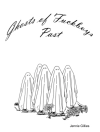Henry Constable was born in Newark-on-Trent in 1562, the only child of Sir Robert Constable and Christiana Dabridgecourt.Constable matriculated as a fellow commoner at St John’s College, Cambridge at Easter 1578, and then collected his B.A. in January 1580. A contemporary at Cambridge was Robert Devereux, the 2nd Earl of Essex. Their lives would intertwine at several points.Constable enrolled at Lincoln’s Inn on 21st February 1583 but by September he had moved to Scotland. From there came a posting to Paris to the English ambassador from December 1583 until April 1585. The next month he was in Heidelberg. During this whole period Constable was a spokesperson for the Protestant cause.A few years later, from 1588 he was at Court in London where accounts say he was a favourite of Queen Elizabeth. In 1589 on the occasion of King James’s marriage he was sent to Edinburgh and had become a member of the circle of Robert Devereux. To all intents and purposes he seemed to be a Protestant. In 1591 Constable went to Normandy with the English forces under Essex who laid siege to Rouen. It was at this point that he seemed to now openly embrace Roman Catholicism. For the ten years Paris was his base though he travelled to Rome in 1595 for a short time before returning to Rouen, then Antwerp and Brussels.But Constable, in spite of the constant movements and Court politics, was also a very respected poet. In 1592 ‘Diana’, a sequence of twenty-three sonnets by Constable, was published. It was one of the first so-called sonnet cycles which were to become very popular in the following decades. A second edition, containing five new sonnets by him together with additions by Sir Philip Sidney and others followed in 1594. On 1st March 1599 Constable arrived at Leith in Scotland, and eventually obtained access to King James, remaining until September, ‘hunting and conversing on poetry and divinity’ with the King. Four poems by Constable were included in England’s Helicon in 1600, among them ‘Damelus Song to his Diaphenia’ and ‘Venus and Adonis’. Hazlitt had praise for the work in abundance, ‘A more beautiful specimen of early English lyric poetry than The Sheepheard’s Song of Venus and Adonis could hardly be found in the whole of Elizabethan poetry’.Despite his apparent conversion he claimed loyalty to Queen Elizabeth, and supported King James’ claim to the English throne after her death in preference to the claim of the Spanish Infanta; the daughter of Philip II of Spain. On James’s accession to the English throne Constable hoped to return to England. In February 1604 everything appeared well as he received a warrant for possession of his inherited lands. However, he was still trying to influence King James to be more tolerant of Catholics and the result was his imprisonment in the Tower from 14th April to 9th July 1604. On his release he was placed under house arrest and dispossessed of his lands.On 31st July 1610 he was granted licence to leave England and he made his way to Paris.Little more is known of his activities apart from the record of his presence at a theological disputation on 4th September 1612. In 1613 his friend, Cardinal Perron, sent him to Liege on a mission to convert an English Protestant divine, Benjamin Carier. Henry Constable died an exile in Liege on 9th October 1613.
Henry Constable
Diana [EPUB ebook]
‘But joy in this, though fate ‘gainst me repine, My verse still lives to witness thee divine”
Diana [EPUB ebook]
‘But joy in this, though fate ‘gainst me repine, My verse still lives to witness thee divine”
Bu e-kitabı satın alın ve 1 tane daha ÜCRETSİZ kazanın!
Dil İngilizce ● Biçim EPUB ● Sayfalar 40 ● ISBN 9781787804180 ● Yayımcı Copyright Group ● Yayınlanan 2019 ● İndirilebilir 3 kez ● Döviz EUR ● Kimlik 7001081 ● Kopya koruma Adobe DRM
DRM özellikli bir e-kitap okuyucu gerektirir












